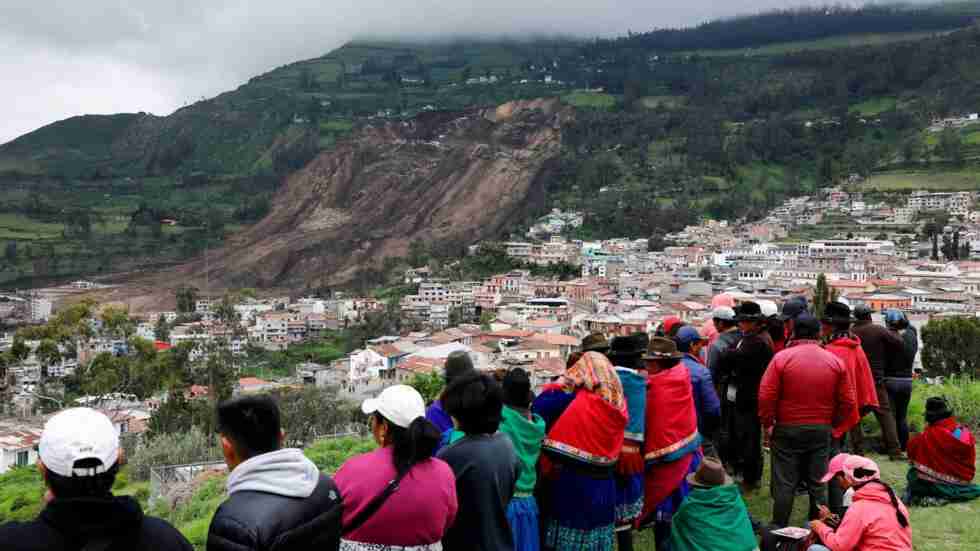Rescuers searched Monday for nearly 50 people reported missing after a landslide triggered by months of heavy rain killed at least seven people in southern Ecuador.
Rescuers and civilians were seen Monday trying to clear debris by hand to get to any survivors between sheets of twisted metal and split tree trunks.
In the muddy streets of Alausi, a settlement of some 45,000 people surrounded by green hills, shocked residents stood around waiting for news, many in tears.
The avalanche also hit several public buildings, damaged roads and closed three schools.
“I managed to escape with about 15 minutes to spare,” survivor Jose Agualsaca told Teleamazonas, saying he was rushing to get things out of his house before the mud came.
President Guillermo Lasso said on Twitter that firefighters from neighboring areas had been rushed to the village to help people affected by the tragedy.
He urged all citizens to evacuate the affected areas.
The government mobilized the national police, armed forces, the health ministry and the Red Cross to help with the rescue efforts.
“We have activated temporary accommodation and mobilized sleeping kits for those that have lost their homes,” said a government statement on Twitter.
Since the start of the year, heavy rains in Ecuador have caused the deaths of 22 people, destroyed 72 homes and damaged more than 6,900, according to the SNGR risk management secretariat.
The downpours have caused close to 1,000 dangerous events, such as landslides and flooding.
The area affected by Sunday’s disaster had been in a designated yellow alert risk zone since February following other landslides.
Sunday’s landslide came just over a week after 15 people were killed when a strong quake struck in Ecuador’s southwestern border region with Peru.
Afterward, the government declared a two-month state of emergency in 13 of the country’s 24 provinces, allowing economic resources to be redistributed to affected areas.
In February, heavy rains forced oil pumping in the country to be suspended for five days for safety checks over fears that a major oil pipeline could have been damaged by the collapse of a bridge.



